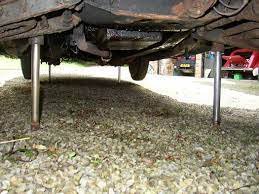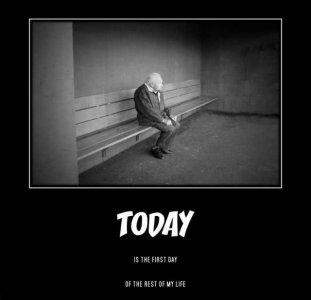feywon
Well-known Member
- Location
- Rural North Central NM
While there are some differences in how i would characterize my childhood, i think i can understand how you feel. While Dad did not always protect me from the vagaries of my Mom's moods, he did give me a lot of tools that helped during my teens when it was just me and her till my brother was born when i was 16. i was an overly responsible kid in many ways and always put Mom's feelings first. Those tools have helped through out my life.It amazes me when people say that although they see an old person in the mirror, they still feel young inside. I've never felt young inside even when I was actually young. My late sister-in-law told me the same thing, that as far back as she could remember, she'd always felt old. And this discussion got me to thinking about it: what did sister-in-law and I have in common that would make us feel this way? Disfunctional childhoods. What I can remember most about my childhood is being afraid all the time, maybe on a "good" day just being worried. In both of our cases, it was our fathers who scared us the most. So if you're wondering why some of us don't "feel young inside", that could be why. From what I experienced and all the people I've known, carefree, happy childhoods were very rare. (Or maybe we survivors of unhappy childhoods always gravitate to each other, IDK. And I can understand why those few who did have happy childhoods wouldn't want anything to do with us who didn't, they'd want to keep that "don't depress me, lalala" thing going.)
Where i was fortunate, beyond the mental/emotional tools i got from Dad, was that in my late teens and my 20's, when out of my Mom's house/control, i felt justified making my own real choices because i was taking full responsibility for myself. i began to realize i didn't have to put her first, tho to anyone looking at us from outside it may have seemed so. At least 2 weekends a month i 'went home' and babysat my brother so she could go 'out' without additional expense and $$ flowed from me to her not vice versa unlike with a lot of my contemporaries. As my brother got older i would sometimes take him to my place in NYC for the weekends-- we'd hit the park, zoo, Museums. Because then what i did for her was as much if not more about making my little brother's life more pleasant and safe feeling than accommodating her. But i allowed myself to have fun, to take joy in life the way i had in my first decades despite some of the hardships our family faced.
By the time my kids came along i was tried to pass on the best of both my parents to them--Dad's logic/reason and emphasis on learning as being critical, Mom's ability (when in the right mood) to be silly and just have fun with the kids sometimes. Only i didn't have to be 'in the right mood', i had reasoned out that it was good and healthy for me as well as the kids to sometimes put having fun and/or thoughtful time with them first.
Don't be so sure that the people who try to avoid your reality had happy childhoods, or even just happier than yours--everyone responds differently to trauma. For some survivors, avoiding others with similar histories may be a coping thing--a way to avoid 'triggers'. For others accepting you as you are makes sense because they know that some key people doing that for them along away gave them some comfort in life. When i'm feeling particularly emotionally vulnerable i don't avoid reading and responding to friends who are generally less 'cheerful', but i do sort of put 'shields up' before reading their posts.



